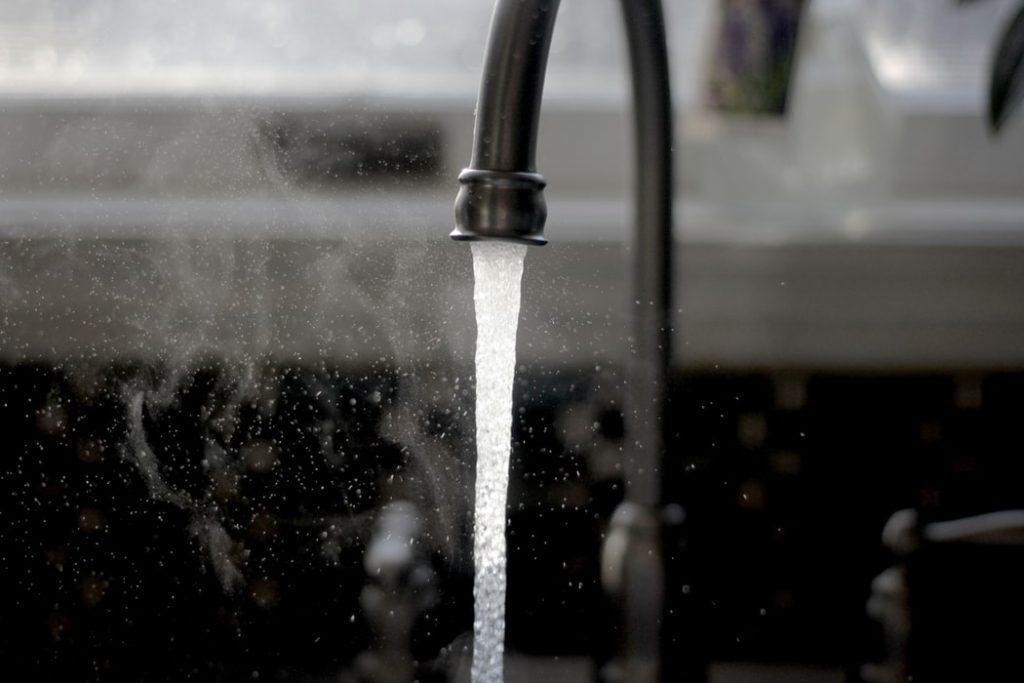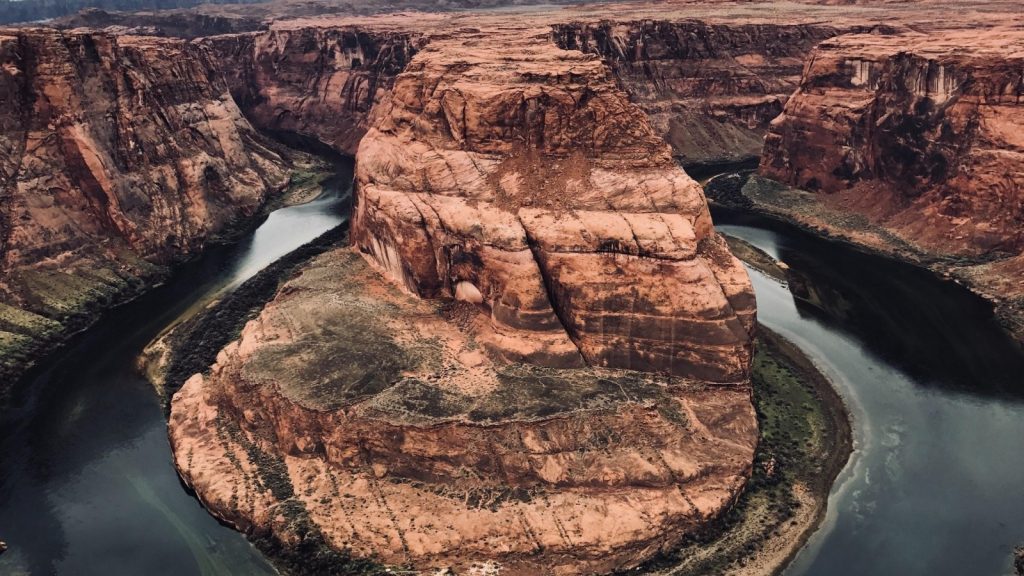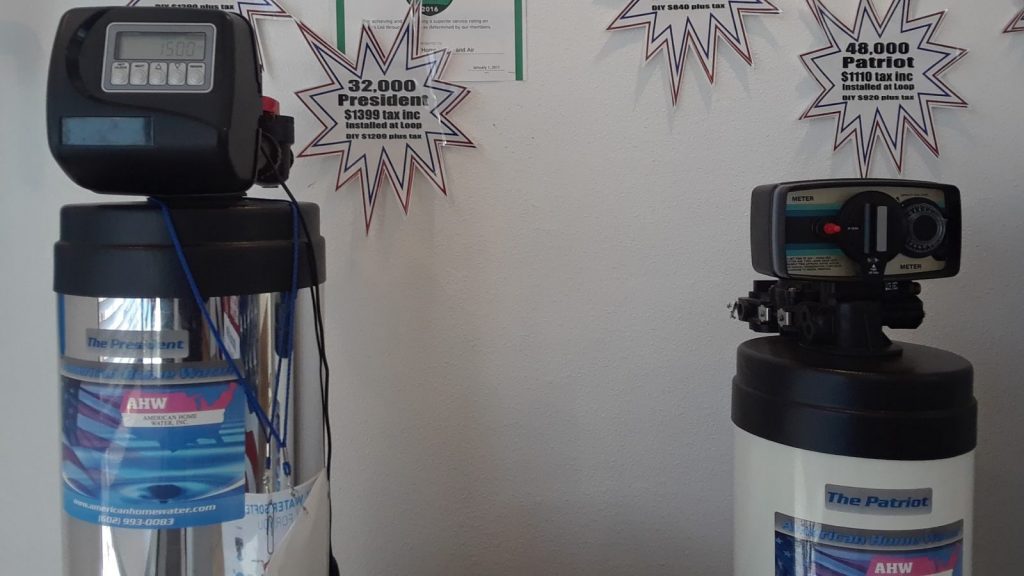The benefits of a water softener are many. In essence, the softener gets rid of calcium and magnesium to make your water soft. They require very little maintenance and last between 15-20 years, reducing your electricity bill and eliminating scale throughout your plumbing.
In this post, we’ll explore these and more water softener benefits to give you a clear idea of why these machines are essential for many homeowners in America.
Do I Need A Water Softener?
One of the most common questions we hear from homeowners is — do I need a water softener? Simply put, if you live in an area like Phoenix, the answer is an unequivocal ‘yes.’ Here, the pros and cons of a water softener weigh heavily toward the pros due to Phoenix’s extraordinarily hard water.
Roughly 85% of the water in the United States is hard, necessitating systems like water softeners for most homes.
Understanding Water Hardness Classifications
All water falls into one of the following categories:
- softest water
- moderately hard
- hard
- very hard
The classification is dependent on the amount of calcium carbonate int the water. This concentration is measured in parts per million (ppm). The softest water has 0 to 60 ppm of minerals. Moderately hard water has between 61 and 120 ppm, hard water has between 121 and 180 ppm and very hard water is anything above 180 ppm.
Why Use A Water Softener? Key Signs
Even with the few water softener disadvantages that exist (primarily upfront cost and an off chance you might not love the demineralized water’s taste), water softener benefits make them worth it overall. Without these systems, you’ll experience:
- stains on your sinks and bathtub
- stains on utensils in your kitchen
- more soap usage than usual because detergents do not readily lather with hard water
- faded clothes after long periods
- scale deposits on appliances in your kitchen and plumbing
- perpetually dry hair and skin after you shower
In light of these hard water effects, you certainly now understand why water softeners in Phoenix are so popular.
6 Benefits of a Water Softener
Less Detergent Use
Why use a water softener? One of the main reasons is to make your laundry machine more efficient. With hard water, you’ll end up with stiff clothes that aren’t as clean. As such, you’ll need to use more detergent and fabric softener.
One of the benefits of a water softener is that its product lathers with detergent much easier, saving you as much as 50% of your soap.
Your Energy Bill Will Be Lower
When considering water softener pros and cons, one of the primary points in the former checkbox is reduced energy consumption. For one, your water heater’s exchange efficiency improves with soft water. Second, you won’t have to use as much warm water in the shower to clean your skin and hair properly (more on this later).
Fewer Stains On Household Items
The minerals in hard water produce stains on household items like clothes, cutlery, cups, sinks, and appliances. This is very unsightly and requires frequent cleaning. With a water softener, you don’t have that problem; there’s no sediment to build up on your household items.
Healthier Skin and Hair
Hard water dries out your skin and hair. It also forms a layer of film on your skin and hair that poses risks for your hygiene. After installing a water softener, you’ll notice that it’s much easier to moisturize and maintain your skin’s hygiene.
Softer Fabrics
The same way hard water makes the skin dry and flaky, it makes clothes dry and scratchy. Soft water is, by definition, devoid of the minerals that cause this issue.
You’ll Use Much Less Water
You need a lot of hard water when you are cleaning thanks to the scale and the fact that lather does not form readily. After installing a water softener, you might be surprised at how much less water you need.
Water Softener Disadvantages
No discussion of water softener pros and cons would be complete without a discussion of the latter. Water softener disadvantages are minor and few in number. They shouldn’t discourage you from installing a softener altogether but they’re worth noting nonetheless.
Water Softeners Don’t Filter For Contaminants; You’ll Need A Dedicated System
A water softener only removes minerals. You’ll still need an additional filter to remove contaminants like iron, chlorine, and heavy metals. You can also use a system that combines both functions (filtration and softening) — but you can’t rely solely on a softener.
Installation Changes A Home Substantially And May Be Unsuitable For Renters
Installing a water softener alters your home significantly. As such, it may not be suitable for renters that cannot make substantial changes to their property.
You May Not Like The Water’s Taste
Lastly, there’s an off chance you may not like the water’s taste. This depends solely on personal preference; some people actually quite like how soft water tastes but others prefer more mineral-rich water.
Conclusion
Water softeners provide a number of crucial benefits that make them essential in places like Phoenix, Arizona where the quality of tap water is relatively low. By removing the hardness minerals, a water softener ensures you experience easier cleaning, less scale buildup, and a lower utility bill.
If you’re looking for a water softener in Phoenix, Arizona or surrounding areas such as Peoria, Glendale, Scottsdale or Mesa, be sure to give us a call at American Home Water and Air. We’ve been installing HVAC and water treatment products in the area for more than 30 years and would love to lend you a hand!
Found this helpful? Also check out 4 Amazing Facts About Glendale and 5 Awesome Things To Do In Glendale.










